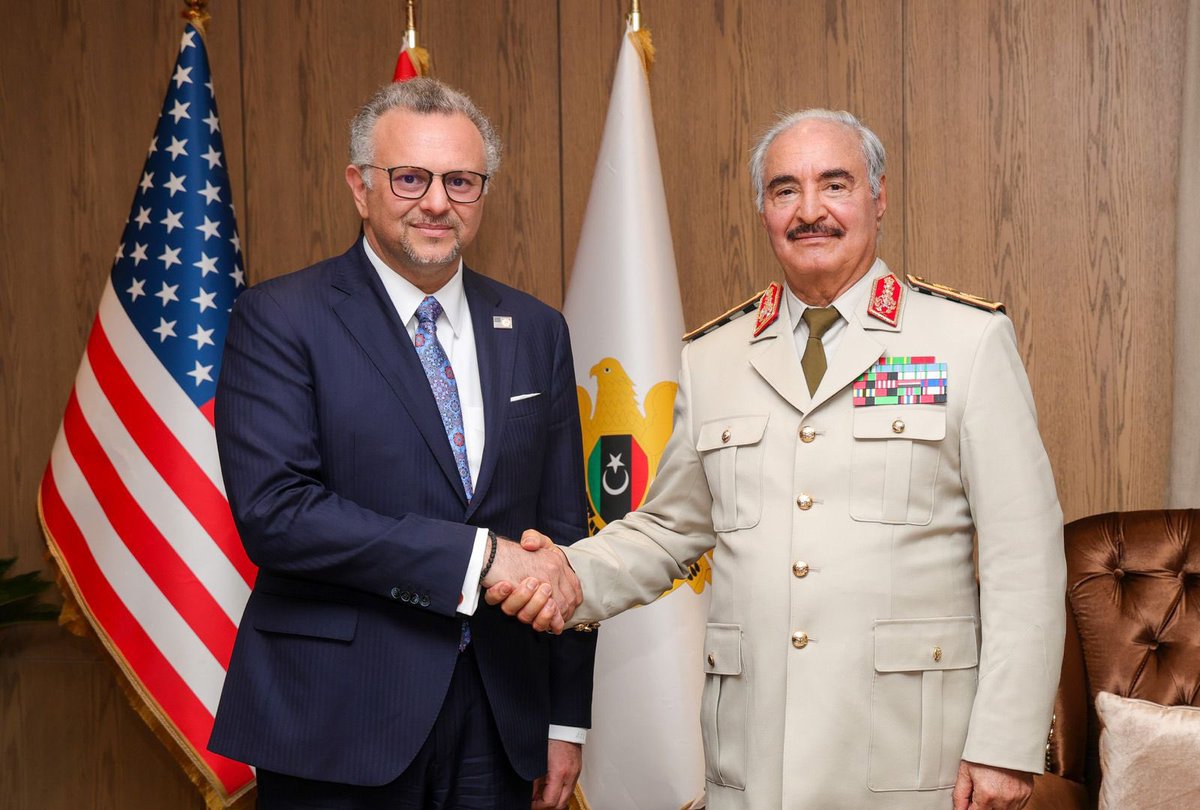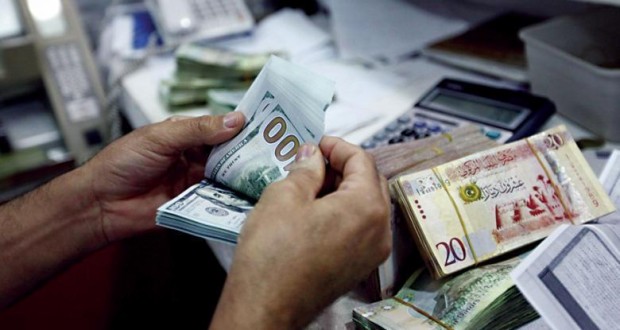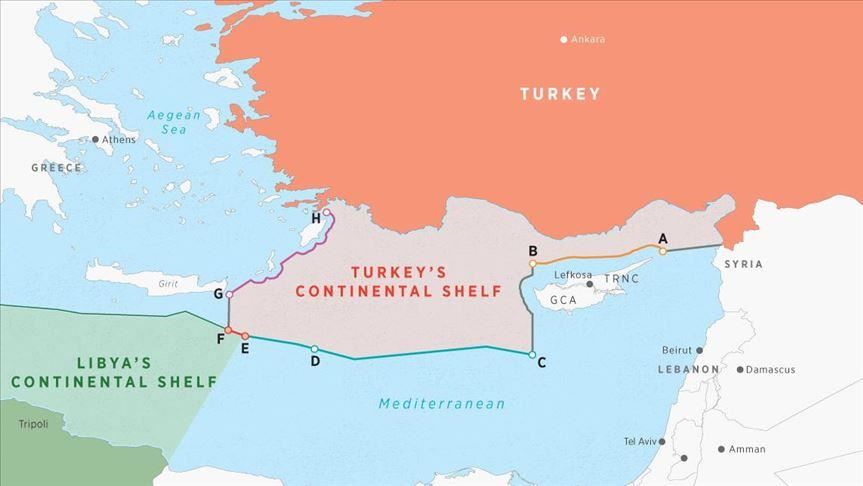Gulf and Russia: new attempts to facilitate peace in Libya
Published on 2016 July 8, Friday Back to articlesWhen the UN facilitated dialogue between the Libyan parties from 2014-2015, it was very clear that the engagement was a political dialogue, and not a national dialogue. The efforts had the discrete purpose of helping conflicting interest groups reach a settlement on the next steps in Libya’s necessary transition to reunite and stabilise the country. Yet, without national reconciliation, tensions among these interest groups threaten to undermine progress in political re-unification. There have recently been a number of attempts to revive national dialogue processes to mitigate these threats.
Representatives from the Gulf, including Saudi Arabia and Oman, recently announced plans for comprehensive reconciliation between the GNA and the House. Saudi Arabia reportedly planned to host meetings between warring parties after the Eid celebrations at the end of Ramadan on 5 July. Oman had already hosted UN Special Envoy Martin Kobler and House speaker Aguila Saleh on 27 June to discuss overcoming the impasse to Libyan peace.
Saudi Arabia seems to be a promising facilitator for Libyan peace. Many of its clerics have the religious authority to stand up to Libyan Grand Mufti Sadiq Al-Ghariani to press him to stop playing such a divisive role. A number of Saudi clerics reportedly intended to visit him last week to discuss his behaviour.
Saudi Arabia has not played as destructive a role in Libya as other Gulf states including the UAE and Qatar. Riyadh is also focused on aggregating tribal support for Libyan peace and reconciliation throughout the country which is critical to any effort’s success. Libya may not, however, be a foreign policy priority for Saudi Arabia, because it needs to build stability on its southern border after its destructive and expensive military campaign in Yemen.
Meanwhile some see Russia as playing a growing role in supporting national reconciliation in Libya. Haftar paid another visit to Moscow last week where he asked for more military support, including replacement parts to his aging Russian-made air fleet. On the heels of this visit, Presidency Council deputy head, Ahmed Maiteg, also went to Moscow in a clear attempt to emphasise that the GNA had political legitimacy that Haftar cannot have. Interestingly, however, Haftar held meetings at the ministerial level in Moscow, while only deputy ministers were willing to meet with Maiteg. Senior Russian officials spoke with Kobler by telephone after these visits to discuss national reconciliation, and Presidency Council head Fayez Serraj is reportedly was planning to visit Moscow in early July.
Both Haftar and Russia are, however, more interested in military co-operation than in reconciliation at the moment. Russia’s ambassador to Libya emphasised that militarytechnical co-operation was currently more promising than political progress. Haftar was also clearly, primarily interested in drumming up military support, rather than peace. He went straight to Cairo after his meetings in Moscow to solicit more support.
…but one new local reconciliation initiative raises eyebrows
There were also new local efforts at national reconciliation last week, but from a dubious source: Basit Igtet (b.1970). The Benghazi-born entrepreneur — who is based in Zurich and has close connections to Qatar — has long wanted a large role in Libya. In 2013, he lobbied hard in Washington for Western support as he attempted to replace the then prime minister Ali Zeidan during a period of intense militia infighting and escalating extremist activity. But these efforts failed, in large part because local Libyans did not know him and were sceptical that he could deliver on his promises. His New York based wife, Sara Bronfman — daughter of the late Seagram drinks billionaire Edgar Bronfman (1929-2013) who was also the long-servicing president of the World Jewish Congress (1979-2007) — also raises questions in Libya. Igtet does not have strong relationships with local leaders, and it appears as though he is simply using his large personal wealth to bankroll a power grab.
Igtet was rebuked in 2014 and largely faded from the scene until last week. On 30 June his public relations firm released a statement saying that he had brokered a ceasefire which had been signed by Haftar and Saleh, and that it would end the fighting in Benghazi, Ajdabiya and Derna for 15 days from 25 June. From this starting point, what he calls the ‘coexistence agreement’, Igtet aspires to create and lead an ambitious neutral committee to monitor the implementation of the agreement; strengthen comprehensive national reconciliation; secure the return of internally displaced persons to their homes; and advocate for eastern political, civil and economic rights.
Although promising on paper, few people in Libya took the announcement seriously. Haftar’s spokesman flatly denied that Haftar had agreed to this framework. When confronted with the fact that Haftar’s signature was on the agreement, representatives from his Libyan National Army (LNA) emphasised that he reserved the right to react to events on the ground in these three cities. The likelihood that a ceasefire would not hold was raised by the fact that none of Haftar and Saleh’s opponents signed the agreement. Indeed, the fighting intensified in Ajdabiya and Benghazi last week.
Igtet’s efforts are probably a self-interested attempt to build his own political influence in Libya, rather than altruistically promote peace. Days after he reportedly brokered the ceasefire agreement, Igtet published an article in Al-Mostakbal about a recent trip to Derna, which highlighted how he had been accepted by the Derna Mujahideen Shura Council (DMSC) as warmly as Haftar and Saleh had welcomed him.
As the GNA and Presidency Council know very well by now, it takes more than employing an expensive US public relations firm, setting up an active YouTube account, and publishing a few well-placed articles to earn the trust of the Libyan public. A national reconciliation process which is based on actual or even perceived self-interest is destined to fail.
A successful national reconciliation effort will eventually be based on initial successes of hard-won local ceasefires — particularly in western Libya — and microagreements on prisoner swaps, checkpoint
demobilisation, and accountability for discrete crimes. Because Libya does not have a strong national identity, or social cohesion, a solely centralised reconciliation process is inappropriate. The Gulf’s focus on traditional tribal reconciliation is a good start, but is only appropriate in areas, such as the east, that are particularly tribal. Ideally, local reconciliation efforts will link bottom-up efforts like local ceasefires with a more comprehensive, top-down effort, aimed at confronting Libya-wide causes of conflict, and building national identity to end the cycle of violence.



